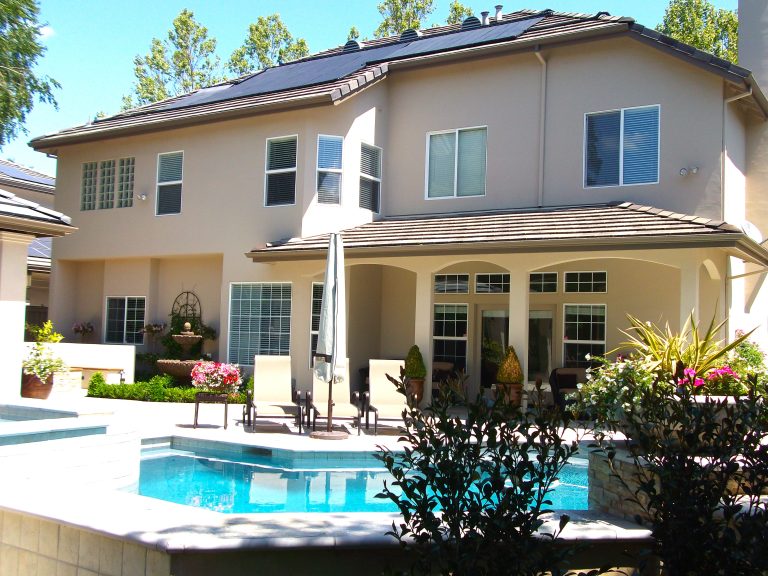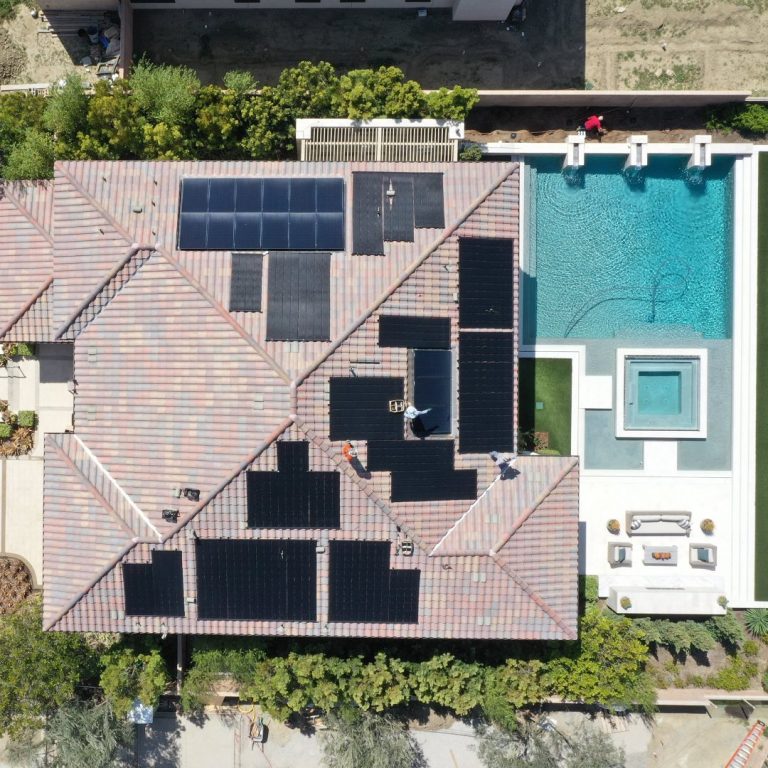Solar Power is Environmentally Friendly
Solar energy has long been a renewable solution for homes and businesses, with solar pool heating leading the way as an eco-friendly alternative to traditional pool heating methods. But just how eco-friendly is solar pool heating? And how can homeowners use it to make their homes more sustainable?
Read on to discover the benefits of solar pool heating, its environmental impact, and how it can help reduce both your pool heating costs and carbon footprint.
How Solar Pool Heating Works
Unlike traditional systems that rely on fossil fuels, solar pool heating captures energy directly from the sun, converting it into heat that warms your pool. Here’s how the system operates:
- Energy Collection: Solar thermal collectors, often mounted on your roof or near your pool, absorb sunlight. This heat energy transfers to water flowing through the collectors.
- Heat Circulation: The heated water circulates back into your pool, maintaining comfortable temperatures throughout the day without the need for electricity or gas.
- Sustainable Solution: The system only requires energy for pumping water through the collectors, which can be offset by a small solar panel, making it a low-emission choice for homeowners.

2024 Eco-Friendly Impact of Solar Pool Heating
A solar pool heating system can dramatically lower the environmental footprint of pool maintenance. In 2024, studies show that households using solar thermal solutions reduce their annual CO₂ emissions by about 6,000 pounds—equivalent to avoiding over 600 gallons of gasoline. This makes it a leading sustainable technology for households with pools, especially in sunny regions.
Furthermore, solar pool heating systems often extend pool usage by an additional 4-6 weeks each season without any added emissions. In areas like Florida and California, this translates to a significant reduction in reliance on gas heaters or electric heat pumps, aligning with regional sustainability goals.
Environmental and Health Benefits of Solar Pool Heating
Zero Emissions
Solar pool heating systems produce no emissions or air pollutants, helping to reduce the overall carbon footprint of pool ownership.Air Quality Improvement
Transitioning from gas-powered pool heaters to solar systems contributes to cleaner air and fewer emissions associated with respiratory illnesses.Water Conservation
Many solar pool heating setups now incorporate water-saving features, such as heat retention covers, which further reduce water loss through evaporation.
Is Solar Pool Heating Worth the Cost?
With rising utility costs, solar pool heating offers a unique opportunity for savings and sustainability. The initial investment is mitigated by federal tax credits and local incentives, making it more accessible than ever. Moreover, 2024 data indicates that energy costs have risen by approximately 8% in the last two years, positioning solar pool heating as a strategic investment for cost savings and reduced dependency on fossil-fuel-based energy sources.

Key States where Solar Power is Environmentally Friendly
Solar pool heating is becoming increasingly popular across the U.S., with Texas, California, Florida, Arizona, and Nevada standing out as leaders in adoption. Each of these states benefits uniquely from solar energy, thanks to their climate, incentives, and eco-conscious homeowner trends.
- California
Leading the charge in solar adoption, California saw a 15% increase in solar pool heating installations in 2024. New policies prohibiting gas heaters in pool constructions, combined with the state’s extensive incentive programs, make solar pool heating a practical, eco-friendly solution. Many California homeowners report annual savings of up to $1,500 on pool heating costs. - Florida
With over 40% of new pool owners opting for solar heating in 2024, Florida is a major player in solar pool heating. Homeowners save an average of $1,200 per year, extending their pool season in an environmentally friendly way. - Texas
Solar pool heating is gaining momentum in Texas, particularly in southern regions where pool use extends into the winter. The state’s focus on energy independence, coupled with long, sunny seasons, contributed to a 12% increase in solar pool heating adoption in 2024. Homeowners typically save around $1,000 per year in heating costs by switching to solar. - Arizona
Arizona’s dry climate and ample sunshine make it ideal for solar pool heating, and in 2024, the state saw a 10% increase in installations. Many homeowners in Arizona choose solar pool heating as part of broader sustainability efforts and enjoy yearly savings of up to $1,300. - Nevada
With a commitment to renewable energy and consistent sunshine, Nevada has quickly adopted solar pool heating as a preferred option. Installations increased by 8% in 2024, with pool owners saving an average of $1,100 annually on heating costs.
These five states showcase how solar pool heating not only reduces environmental impact but also helps homeowners achieve substantial cost savings. As solar thermal technology becomes more efficient, the demand for solar pool heating systems is expected to rise even further across the U.S.




